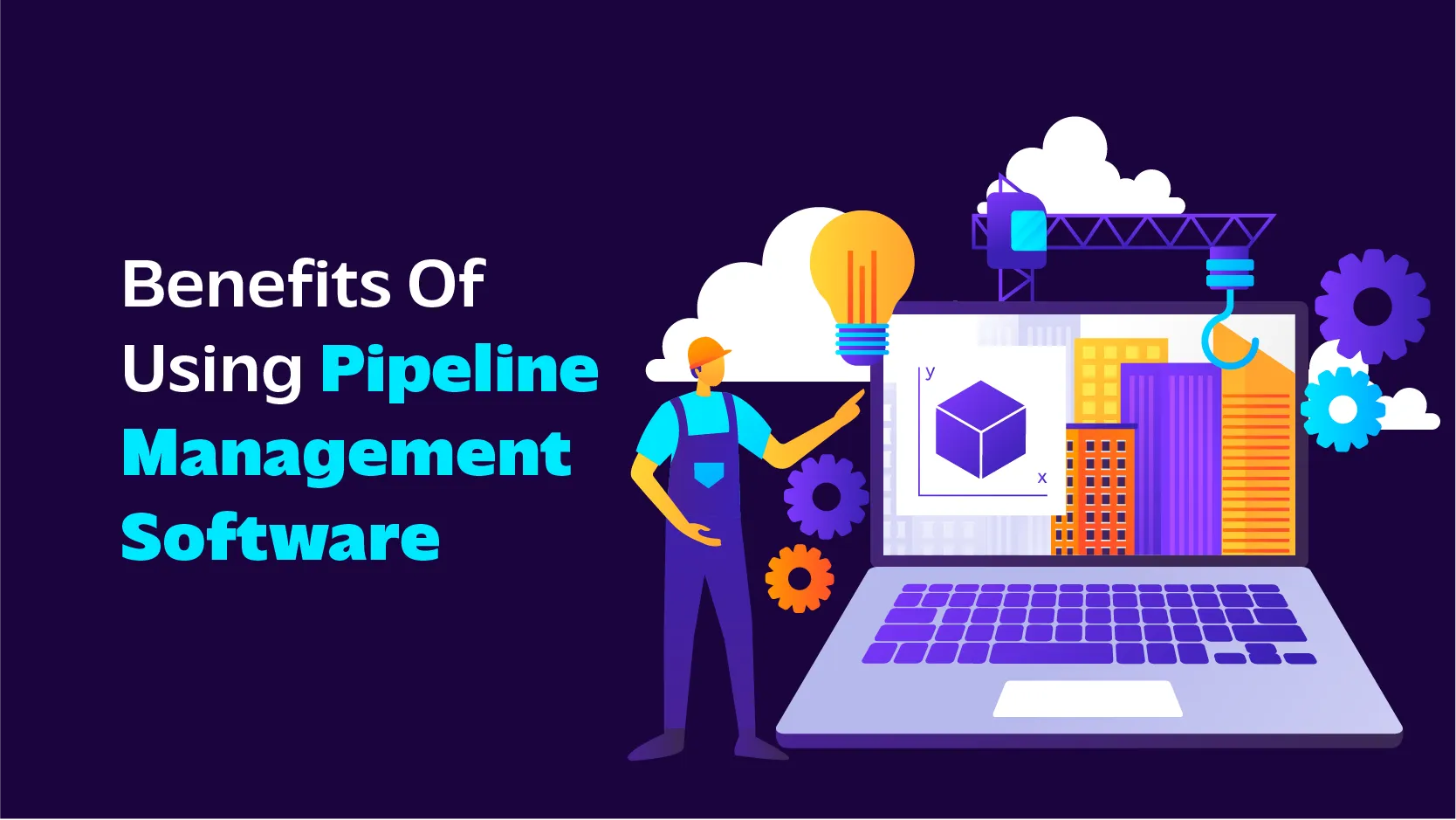Someone once said, “People hate to be sold, but they love buying.” But then, how do you sell your products or services? The answer is through pipeline management software.
Why this? Sales teams often face issues like a lack of proper follow-up, losing leads, not understanding the prospect’s pain points, etc. Studies state that a follow-up call is necessary for 80% of sales.
To overcome these challenges, it is crucial to have the best pipeline management software. This keeps us ahead of the competition by streamlining our sales process and enhancing our output. This article explains the top sales pipeline management tools you need to know in 2024.
What Is Pipeline Management Software?
Pipeline management software is a tool that helps businesses effectively manage their sales pipelines. It provides features and functionalities. These allow businesses to track and analyze sales prospects.
Prospects can be monitored as they progress through the various stages of the sales process. With pipeline management software, sales teams can visualize their sales opportunities and prioritize their efforts. This streamlines their sales activities.
Benefits Of Using Pipeline Management Software

- Efficient Sales Process: Pipeline management software helps streamline the sales process. This is done by providing a clear visual representation of pipeline stages. It enables sales teams to track and manage leads. They can also manage opportunities and activities more effectively.
- Improved Sales Performance: With pipeline management software, sales reps can prioritize their efforts on high-value deals. The software provides insights into the potential value and likelihood of closing each deal. This allows sales teams to allocate time. They can use their resources more efficiently.
- Accurate Sales Forecasting: Pipeline management software provides clear metrics and analytics. These help businesses forecast future revenue. It offers insights into deals that are likely to close versus those at risk. Additionally, it shows the overall health of the sales pipeline. This information enables sales managers to make informed decisions about investments and growth.
- Enhanced Collaboration: It facilitates collaboration among sales team members. It allows for easy sharing of information. Updates and progress on deals ensure that everyone is on the same page. Team members are working towards common goals.
- Integration with CRM Systems: Many pipeline management software solutions integrate with customer relationship management (CRM) systems. This ensures that sales reps have access to up-to-date customer information. They can seamlessly manage their pipeline within the CRM environment.
Also Read: Why Should Businesses Invest in Revenue Intelligence Solutions?
7 Best Pipeline Management Software For 2024
Overview: Keap is one of the best pipeline management software available in the market. It is an advanced sales and marketing automation software designed to save time and enhance sales growth through personalized and automated follow-ups. It automates repetitive tasks, allowing users to focus more on business activities.
Features:
- Easy and Advanced Automation: Facilitates both simple and complex automated workflows, helping to convert more leads and close deals efficiently.
- Automated Follow-Ups: Sends automated follow-ups via text and email to potential clients when they fill out a form on the website or social media.
- CRM Integration: Captures lead information such as behavior, preferences, and likelihood to buy, improving lead conversion.
- Zapier Integration: Connects with over 4,000 apps through Zapier, enabling creative and effective automation.
- Contact Management: Integrates well with CRM, marketing automation, and e-commerce capabilities.
- Template Library: Provides templates for creating effective emails and texts.
- Continuous Updates: Regularly introduces new features and improvements.
Cons:
- Perceived as complex by some users.
- May be expensive for small businesses.
Pricing:
- Starts at $159/month.
Lusha
Overview: Lusha is a buyer intelligence tool that enhances outbound strategies by helping businesses connect directly with potential buyers. It offers targeted account information and prioritizes outreach based on company-level intent scores.
Features:
- Buyer Intelligence: Tracks consumption habits and market trends to personalize messaging and increase deal closure rates.
- Prospecting Alerts: Notifies users of any prospecting activity changes, allowing for a customized approach.
- Advanced Search Filters: Uses filters like intent scores and technology lists to identify potential clients, speeding up deal cycles.
- CRM Integration: Seamlessly integrates with popular CRMs like Salesforce and HubSpot.
- Lead Generation: Enhances lead generation with tools for identifying new leads and ideal customer targeting.
- Data Enrichment: Provides data enrichment and cleansing to maintain up-to-date contact information.
Cons:
- Email data quality could be improved.
- Limitations in data coverage.
Pricing:
- Free plan available (up to 1 user). Paid plans start at $29/user/month.
Zapier
Overview: Zapier is a cloud-based automation tool that connects apps and automates workflows. It allows users to create “zaps” to automate repetitive tasks and streamline data transfer between apps.
Features:
- App Integrations: Supports over 5,000 apps, including Gmail, Mailchimp, QuickBooks, Zoom, and Trello.
- Custom Integrations: Allows users to create custom integrations without coding.
- Pre-Built Zaps: Offers a library of pre-built zaps that can be customized and installed with ease.
- Task Automation: Automates simple tasks and complex workflows, enhancing efficiency.
- Bulk Data Transfer: Enables bulk data transfer options.
Pricing:
- Free version: One user can automate up to 100 tasks per month and create 5 single-step zaps.
Streak
Overview: Streak is a CRM designed to work within Gmail, allowing users to manage leads directly from their inbox. It offers tools for deal tracking, client management, and sales pipeline stage tracking.
Features:
- Gmail Integration: Manages leads without leaving the Gmail inbox.
- Deal Tracking: Tracks deals and client interactions through email.
- Client Management: Includes tools for adding notes and files to contact records.
- Analytics: Provides data visualizations to identify trends and focus on critical leads.
- Task Management: Features built-in task management and email templates to improve sales performance.
- Pipeline Management: Tracks sales pipeline stages and merges mail to send up to 50 emails per day.
Pricing:
- Free version: For individuals, track up to 500 leads and use Mail Merge to send up to 50 emails per day. Includes basic CRM functions.
Zixflow
Overview: Zixflow is a sophisticated sales pipeline management tool designed to simplify and streamline the sales process. It provides a customizable and user-friendly platform with a variety of features aimed at enhancing customer relationships and expediting deal closures.
Features:
- Ease of Use: The platform is designed for quick setup and intuitive use, with drag-and-drop functionality and easy lead addition.
- All-in-One Platform: Consolidates scheduling, follow-ups, task management, and email synchronization in one place.
- Organized Overview: Offers a 360-degree view of all activities, ensuring no task is overlooked.
- Robust Analytics: Includes filtering, grouping, and result analysis to identify winning patterns.
- Audience Segmentation: Allows segmentation and tagging of audiences, enabling list-wide actions and prebuilt list templates for efficient list management.
- Kanban View: Divides the sales pipeline into manageable stages, making tracking leads and nurturing prospects easy.
Pricing:
- Forever-Free Plan: A basic plan to familiarize users with the platform.
- Starter Plan: $19/user/month for advanced features.
- Growth Plan: $49/user/month for comprehensive access.
EngageBay
Overview: EngageBay is an all-in-one marketing, sales, and customer service CRM designed to help businesses acquire, nurture, and convert leads into customers. It’s particularly suitable for small businesses and startups looking to streamline their sales processes.
Features:
- Lead Management: Identifies and tracks leads using features like Location Tracker and user interaction tracking.
- Engagement Tools: Uses presentations, emails, and proposals to engage customers at the right moments.
- Autoresponders and Email Campaigns: The free version supports up to 500 contacts, with capabilities for autoresponders, email campaigns, and landing page creation.
- Alternative to Attio: Offers similar features to Attio, making it a viable alternative for users seeking a switch.
Pricing:
- Free Plan: Limited to basic features.
- Paid Plans: Range from $11.95/user/month to $73.59/user/month, offering more advanced functionalities.
HubSpot
Overview: HubSpot is a powerful sales pipeline management tool known for providing insights into which activities generate the most revenue. It offers a comprehensive suite of tools to automate contact records, manage projects, and attribute revenue effectively.
Features:
- Contact Record Automation: Reduces manual data entry by automating the addition of new deals from company and contact records.
- Daily Outreach Lists: Generates daily outreach lists to streamline sales activities.
- Project Management: Facilitates project management with customizable pipeline steps.
- Revenue Attribution: Offers insights into revenue-generating activities to help sales teams close deals efficiently.
- Sales Dashboard: Provides updates on sales quotas, team and individual performance, and sales activity patterns.
Cons:
- Contact merging is difficult and time-consuming.
- Limited customization for quotes.
- High cost of advanced plans.
- No option to avoid annual billing.
Pricing:
- Free Tools: Basic suite for contact and prospect management.
- Professional Plan: $450/month (billed annually at $5,400).
- Enterprise Plan: $1,500/month (billed annually at $18,000).
Winding Up on Managing Sales Pipeline
Tools for managing the sales pipeline can help companies expand and make money by streamlining the sales process and avoiding lead losses from unanswered calls or slow replies.
Creating sales cadences also automates repetitive processes, freeing up team members’ time to concentrate on difficult sales duties. Businesses can increase income annually and streamline their sales by employing pipeline management software.
![7 Best Pipeline Management Software to Boost Revenue [Free & Paid]](https://martech360.b-cdn.net/wp-content/uploads/2024/06/Best-Pipeline-Management-Software-01-450x300.webp)
